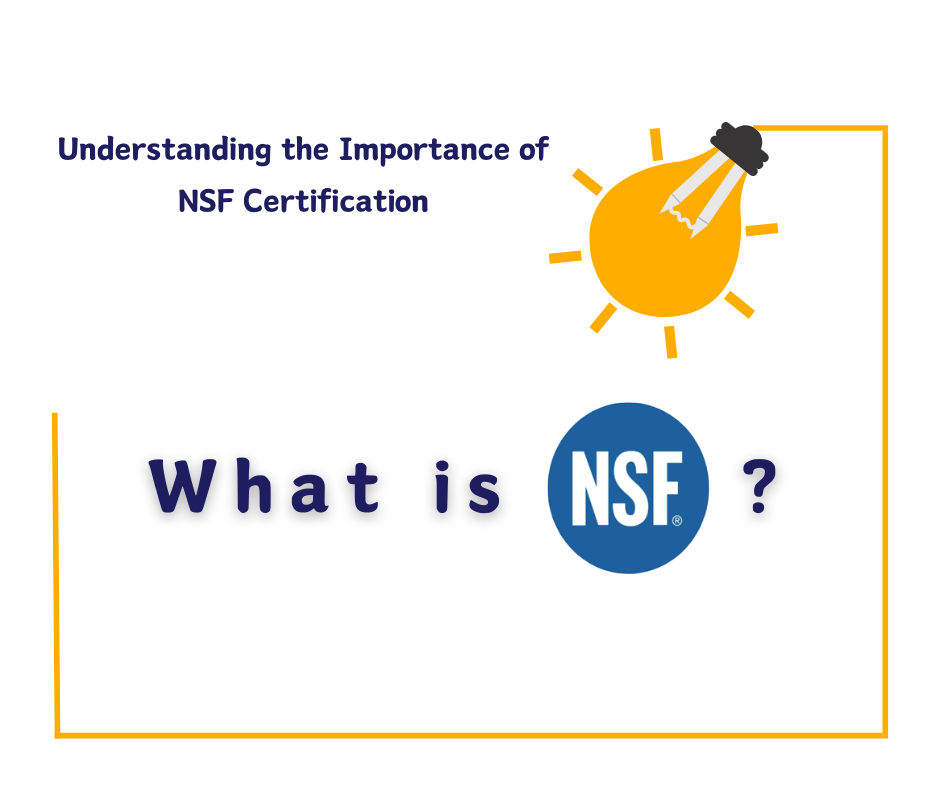
Introduction to NSF
NSF (National Sanitation Foundation) is an internationally recognized independent organization dedicated to public health and safety. Founded in 1944, NSF focuses on developing public health standards and certification programs that cover a wide range of products and industries, including water, food, consumer goods, and health sciences.
The Role of NSF
- Standards Development: NSF creates rigorous public health and safety standards that are widely accepted and applied across various industries.
- Product Testing and Certification: NSF conducts thorough testing and certification of products to ensure they meet high sanitation and safety requirements.
- Review and Monitoring: NSF continuously reviews and monitors certified products and facilities to ensure ongoing compliance with standards.
The Significance of NSF Certification
NSF certification is a mark of quality and safety, indicating that a product or facility has undergone rigorous scientific testing and review to meet the highest health and safety standards. Products with NSF certification offer consumers the assurance that:
- Independently Tested: NSF performs independent and stringent testing and review processes to guarantee product quality and safety.
- International Standards Compliance: NSF-certified products meet global health and safety standards.
- Ongoing Monitoring: NSF continuously monitors certified products and facilities to ensure they consistently meet standards.
Why is NSF Certification Important?
- Consumer Trust: The NSF mark is a symbol of quality and safety that consumers can trust when purchasing and using products.
- Global Recognition: NSF certification is widely recognized worldwide, enhancing a product’s competitiveness in the international market.
- Health and Safety Assurance: NSF ensures that products are free from harmful substances and meet stringent hygiene standards, protecting consumer health and safety.
To learn more about NSF, you can visit the official NSF website at www.nsf.org.





